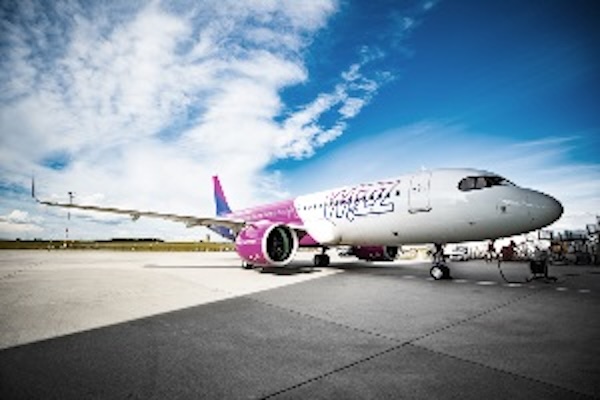Wizz Air’s growth trajectory was recently hindered by technical challenges. Engine-related issues led to a significant grounding of aircraft, impacting capacity growth.
The airline’s ability to adapt and respond strategically to these challenges is a testament to its operational resilience. This situation, however, underscores broader industry vulnerabilities tied to supply chain dependencies.
Impact of Engine Groundings on Capacity
The recent engine-related groundings have significantly impacted Wizz Air’s capacity growth. In May, passenger numbers increased by a modest 2.1% to reach 5.1 million. Capacity, however, experienced only a 1.2% rise due to 45 grounded Airbus aircraft. This grounding stemmed from a recall of GTF engines, essential components for the airline supplied by Pratt & Whitney.
The limited capacity growth highlights the challenges airlines face when unexpected technical issues arise. Grounding aircraft can ripple through operations, affecting passenger numbers, strategic planning, and financial performance. Wizz Air’s situation exemplifies how airlines must adapt swiftly and effectively to maintain service levels and customer trust.
Management Response to Challenges
Wizz Air has taken proactive measures to manage this situation effectively. The airline reported an improvement in its load factor, rising by 0.7 percentage points to 91% compared to the previous year. This increase reflects a strategic balance between passenger volumes and yield progression, showcasing strong management action.
Maintaining a high load factor is critical for airlines, impacting profitability and operational efficiency. By adjusting routes and schedules, Wizz Air demonstrates agility in responding to operational disruptions. Such adaptations ensure continuity in service and help preserve customer satisfaction amidst challenges.
Annual Performance and Future Outloook
Despite the setbacks, Wizz Air achieved a remarkable annual performance. Last month’s figures contributed to a rolling annual total of 62.1 million passengers, marking a 16.8% increase.
This achievement underscores the airline’s resilience and capability to navigate complex operational landscapes. However, the future outlook remains cautious as the industry anticipates further challenges in engine availability and supply chain stability.
Airlines like Wizz Air must remain vigilant in monitoring and addressing supply chain issues. Ensuring the availability of key components, such as engines, will be crucial for sustaining growth and competitive advantage.
Collaborations with Suppliers
Strong collaboration with engine suppliers like Pratt & Whitney becomes essential. These partnerships are critical for addressing technical issues promptly and securing necessary replacements or repairs.
Through coordinated efforts with suppliers, Wizz Air aims to resolve the grounded aircraft situation swiftly. Effective communication and problem-solving with manufacturers are integral to overcoming current challenges. Such collaborations also foster innovation and improvements in engine design, benefiting the broader aviation sector.
Industry-Wide Implications
The situation faced by Wizz Air is not isolated. The grounding of aircraft due to engine issues is a broader concern for the aviation industry. Airlines worldwide are grappling with similar challenges that impact scheduling and service reliability.
The reliance on a limited number of engine manufacturers can exacerbate these issues. It highlights the need for the industry to diversify supply sources and invest in alternative technologies to mitigate risks. This approach could enhance industry resilience and reduce disruptions.
Addressing engine-related challenges requires coordinated industry efforts. Stakeholders, including airlines, manufacturers, and regulatory bodies, must work collectively. Establishing robust protocols for engine testing and maintenance could mitigate future risks, ensuring smoother operational flows.
Customer Impact and Communication
Wizz Air’s grounding of aircraft inevitably impacts passengers, particularly regarding flight availability and potential delays. Clear and transparent communication is vital in managing customer expectations during such disruptions.
The airline’s efforts to keep passengers informed of changes and provide alternatives where possible are crucial. Effective customer communication can preserve brand reputation and foster loyalty, even amidst operational challenges.
In summary, Wizz Air’s experience with engine groundings highlights critical industry challenges. The event underscores the importance of strategic agility and robust supplier partnerships in ensuring operational continuity.
Wizz Air’s response serves as a case study for the aviation sector, showcasing effective management strategies amidst adversity. Engine availability remains a pivotal factor in future capacity planning and industry stability.

